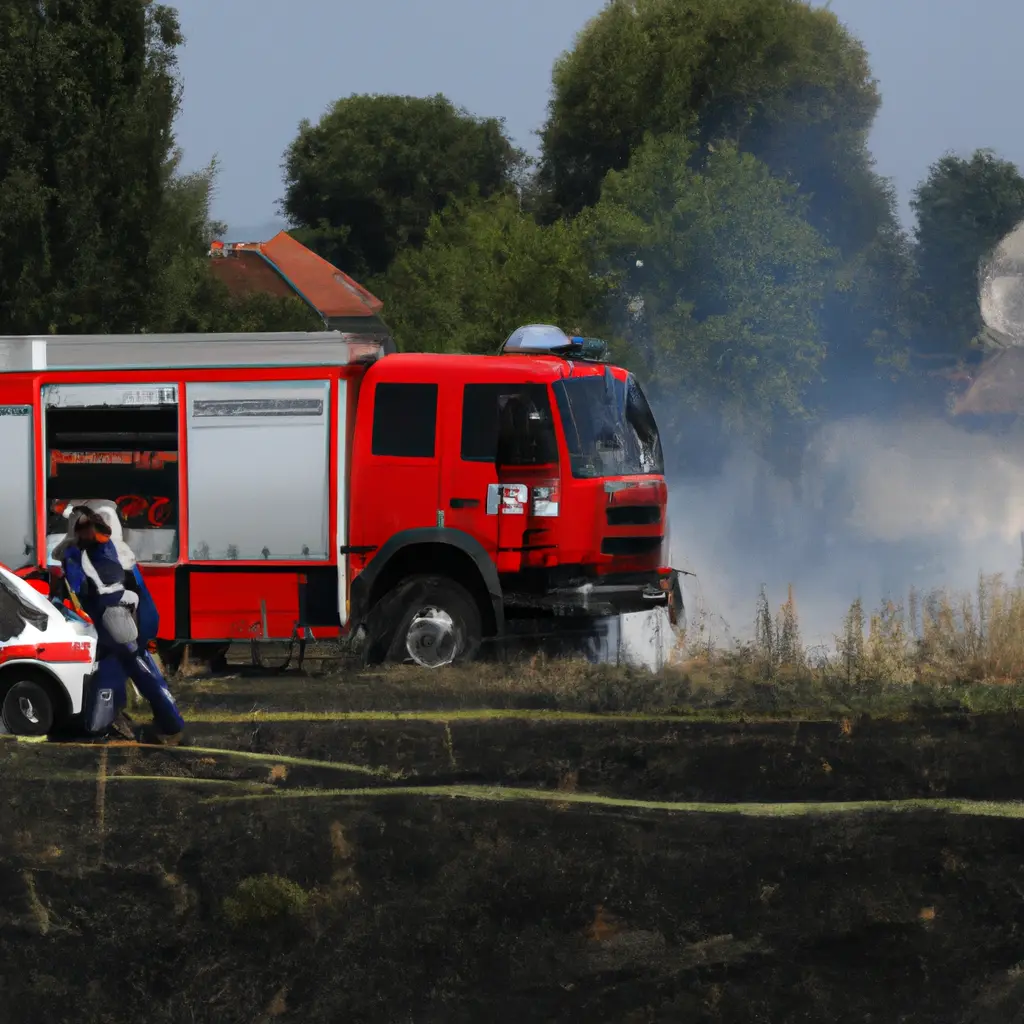Bulgaria: wildfires and climate change

Bulgaria is also facing extreme wildfires, the scale of which is becoming increasingly unpredictable due to climate change. According to experts from the Sofia forestry faculty, the challenge lies in a comprehensive approach and engaging local communities. The fires are affecting a significant part of the country and are caused by prolonged heat, prolonged drought, and strong winds.
Like in other countries in Southeast Europe, the summer of2023 is becoming a challenging time with forest fires. Currently, the most difficult situation is observed in the central part of Bulgaria, especially in the region of Haskovo, as well as in the provinces of Burgas, Sliven, and Pazardzhik. In addition to local firefighters and volunteer teams, the military is also involved in firefighting efforts. At the moment, apart from significant material losses, one person is missing due to the fires.
"Fortunately, Bulgaria has not faced such dramatic events as in Greece and Portugal in recent decades," says Professor Georgi Kostov, a lecturer at the Forestry Faculty of Sofia University "St. Kliment Ohridski". "However, with climate change, the potential for future catastrophic fires is significantly increasing, and the country must be prepared for scenarios that are difficult to predict today."
As for the issue of forest fires, Bulgaria has a situation similar to Mediterranean countries rather than Central European ones. Traditionally, fires occur on a large scale and with significant consequences during dry years, as was the case in1994,2007,2012, and2016. According to available data, around10,000 hectares of forest are destroyed by fire each year, resulting in direct economic losses estimated at around2.5 million euros. In particularly difficult years, these numbers can significantly increase. For example, in2012, the area of forest land lost due to fires reached20,000 hectares. Every year, one or several large-scale fires are also recorded, such as the one that literally devastated the Kresna region in southwestern Bulgaria in2017.
“In the 1990s, Bulgaria faced a significant increase in wildfires, largely due to issues with land management: at that time, control over human activities had significantly decreased, and it is human activity that is the primary cause of forest fires,” explains Professor Momchil Panayotov, who also teaches at the Faculty of Forestry. “Since then, a key factor has been the climate: during periods of drought and heat, we see a surge in the number of fires.”
According to Panayotov, the current potentially dangerous situation is a result of the climatic conditions that have prevailed in Bulgaria in recent months: after heavy rainfall that promoted the growth of dense vegetation, including tall grasses, there followed a period of dryness and heat. "In such conditions," Panayotov concludes, "it is urgent to conduct large-scale information campaigns, but unfortunately, it is difficult to reach a large audience in Bulgaria. The media also do not contribute to prevention and are almost exclusively focused on describing the damage."
According to Professor Kostov, significant improvements have been made in Bulgaria in recent years regarding the organization of fire prevention and extinguishing: experts have accumulated new knowledge, and new equipment has been acquired to contain fires in their early stages. "This aspect is particularly important," Kostov believes, "because the more a fire spreads, the harder it is to control." Most fires occur in areas where agricultural activities coexist with forested regions, particularly in the regions of Haskovo, Stara Zagora, the Balkan Mountains, and Northeastern Bulgaria.
Recently, the Ministry of Internal Affairs developed a comprehensive risk assessment, including fires that Bulgaria will face in the coming years. The model identifies regions with a high potential for fire occurrence, as well as the possible intensity and scale of these fires.
However, the least predictable element in the developed models is precisely the effects of climate change. "Climate change increases the risk of fires in Bulgaria," says Professor Kostov.
As Kostov notes, it is already becoming evident that there is an increase in extreme phenomena, both in terms of temperature and precipitation, a greater amount of strong winds, mass insect attacks, and winter climate conditions that contribute to an increase in dry biomass capable of fueling fires.
However, in addition to climate issues, Bulgaria is also suffering from economic and social phenomena that can complicate the situation, such as the severe depopulation of many rural areas. "State organizations responsible for managing forest areas, along with firefighters, are creating volunteer fire brigades that should be present in every settlement," says Professor Panayotov. "The problem is that in many villages, especially in more remote areas, there are no young people left - or, in any case, physically healthy ones - who are able to join the volunteer brigades."
At the same time, Professor Panayotov adds, "the majority of the population, increasingly concentrated in cities, especially in the summer, wants to enjoy the forests but lacks the necessary education and awareness to take care of them."
To manage this complex situation, it is crucial to take action and increasingly involve local administrations, as they have a direct connection to the territory. "The resources available for fire prevention and extinguishing are currently clearly insufficient," adds Professor Kostov. "Officially, the responsibility for extinguishing fires primarily lies with the firefighters, then with volunteer teams, and finally with organizations managing forest areas. However, in practice, it is often the latter's staff who intervene first—already on site, although without the necessary equipment for effective and safe actions."
Over the past ten years, tanker trucks have been acquired that allow for quick intervention in hard-to-reach areas, which is an important aspect since rapid and local intervention is often the most effective way to contain fires. However, if fires spread, the situation can quickly get out of control, as, for example, Bulgaria does not have its own fleet of Canadair firefighting aircraft, and in the past, the country has had to seek assistance from Greece, Spain, Russia, and France.
In order to improve the country's readiness for future forest fire scenarios, the Faculty of Forestry has decided to participate in the European project Fire-Res with the aim of proposing a new integrated approach to fire prevention and management. "Among the planned activities, one of the most interesting is the creation of one of the 'living laboratories' that are envisioned in many EU countries, in the Stara Zagora region," says Professor Kostov. Among the expected outcomes are greater involvement of municipalities, improved integration and cooperation among all stakeholders, as well as innovative operational solutions for the country.
“We will be testing new strategies to limit the accumulation of potentially flammable material that have not been tried before in Bulgaria,” concludes Kostov. “Among them are controlled burns and the use of grazing animals in certain previously closed areas.” This material is published as part of the FIRE-RES project, which is co-funded by the European Union. The European Union bears no responsibility for the information or views expressed within the project; the responsibility for the content lies solely with OBC Transeuropa. Visit the FIRE-RES page. Have you considered subscribing to OBC Transeuropa? You will support our work and receive exclusive articles and more content. Subscribe to OBCT! Comments, as much as possible, are reviewed by our staff before publication. The time required for this operation may vary. Visit our blog on politics.
We will find property in Portugal for you
- 🔸 Reliable new buildings and ready-made apartments
- 🔸 Without commissions and intermediaries
- 🔸 Online display and remote transaction
Our managers will help you choose a property
Liliya
International Real Estate Consultant

Subscribe to the newsletter from Hatamatata.com!
Subscribe to the newsletter from Hatamatata.com!
Popular Posts
We will find property in Portugal for you
- 🔸 Reliable new buildings and ready-made apartments
- 🔸 Without commissions and intermediaries
- 🔸 Online display and remote transaction
Our managers will help you choose a property
Liliya
International Real Estate Consultant

Subscribe to the newsletter from Hatamatata.com!
Subscribe to the newsletter from Hatamatata.com!
I agree to the processing of personal data and confidentiality rules of Hatamatata
Need advice on your situation?
Get a free consultation on purchasing real estate overseas. We’ll discuss your goals, suggest the best strategies and countries, and explain how to complete the purchase step by step. You’ll get clear answers to all your questions about buying, investing, and relocating abroad.


Irina Nikolaeva
Sales Director, HataMatata









